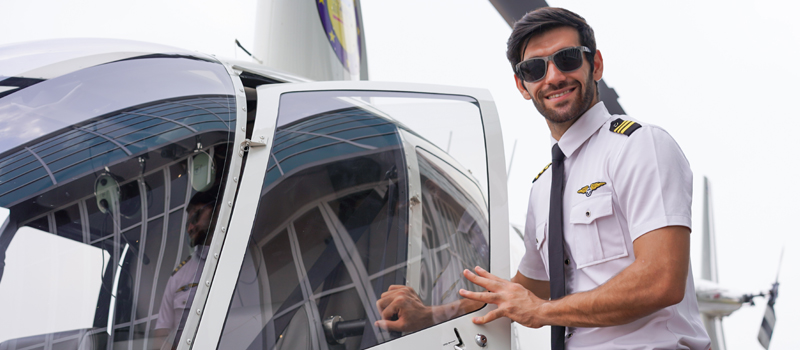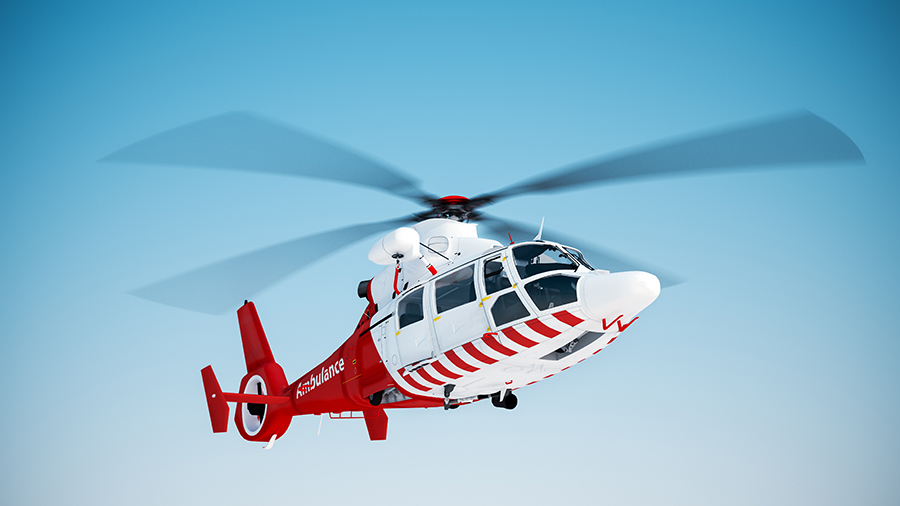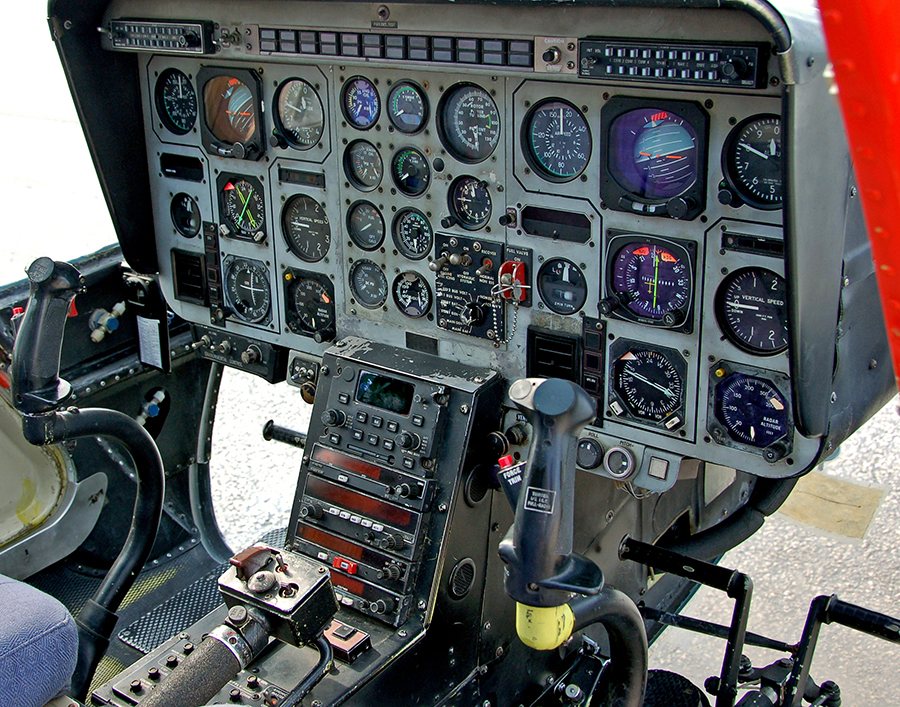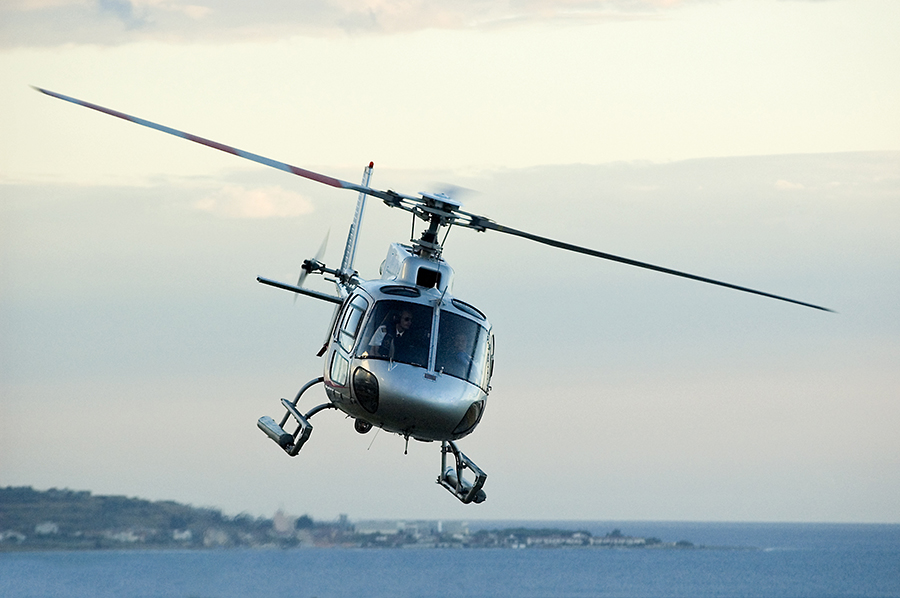-
Requirements for the Commercial Helicopter Pilot's License
-
Obtaining your Commercial Helicopter Pilot's License
- which includes at least:
-
The Commercial Flying Course
-
The Written Test for the Commercial Helicopter Pilot's License
- And Finally...
-
What Next – Getting a Job as a Commercial Helicopter Pilot.
-
Time And Costs Of Becoming A Commercial Helicopter Pilot
-
Conclusion
So you’re thinking of becoming a professional helicopter pilot! Perhaps you have done your Helicopter Private Pilot’s License, and now you realize just how much you enjoy helicopter flying. You’ve talked to other pilots who are ‘going commercial’, and thought about what a great idea it would be to actually be paid to fly helicopters. Perhaps you could do it too.
Or…maybe you haven’t started flying helicopters just yet. But you have always wanted to be a helicopter pilot, and now you’re wondering if you could actually fly them for a living.
Whatever your reasons, and however far you have got with a helicopter flying at this point, there are certain things – a lot of things in fact – that you will need to do in order to become a commercial helicopter pilot. If you’ve started researching them, it could all seem rather complicated, even daunting. But please don’t worry. We will now go through them in order in this article. It may seem quite complex, but if you take it one step at a time, it will certainly be possible, and even enjoyable.
Requirements for the Commercial Helicopter Pilot’s License
The first thing you will need to do is to get a Commercial Helicopter Pilots’ License. This means doing a course for the license issue, and there are certain requirements for this course, that have to have been done in advance. So here is a list of them. You must…
- Be at least 18 years old
- Be fluent at reading, writing, and speaking English
- Be able to provide proof of identity
- Be able to qualify for and obtain a 2ndclass FAA medical certificate. It is a good idea to get this as soon as you possibly can, just in case you find out about any health problems that you didn’t know about. It is a little more stringent than the 3rd Class certificate you may have obtained before getting your Private Pilot’s Helicopter License, and it is not unknown for people to find they cannot get a 2nd Class certificate due to some small health issue. Hopefully, this won’t happen, but it is better to find out about it now, rather than after you’ve spent a large amount of money on the commercial flying course.
- Have already earned a Private Pilot’s Helicopter License. You may already have done this of course. But if not, you will need to get your Private Pilot’s Helicopter License before doing the commercial one. If that is the case for you, do look at the requirements for that now.
Obtaining your Commercial Helicopter Pilot’s License
So you have the prerequisites for the course. Now there are a number of things you need to do in order to get this license. Here is a list of them…
- Hold a current Private Pilot Helicopter License. If it is a long time since you got this license, check that it is still current.
- Log at least 150 hours of flight time as a pilot
- Of the above 150 hours, 100 hours must be in a helicopter. The remainder can be in a fixed-wing aircraft if you hold a license for flying airplanes too.
- In addition, you need to fulfill all requirements around night flight, a pilot in command training, and cross country flight
- Pass a written test
- Pass an oral test
- Pass a practice test flight
This sounds fairly straightforward, but there is a little more to it than the above. The FAA specifies fairly precisely what the 150 flight hours must include; hence the above statement about ‘fulfilling all requirements around night flight, etc’. To be more specific, you must have done the following…
- 5 hours of instrument training solely by reference to instruments
- One cross-country flight of at least 2 hours in a helicopter in day VFR conditions, consisting of a total straight-line distance of more than 50 nautical miles from the original point of departure;
- One cross-country flight of at least 2 hours in a helicopter in night VFR conditions, consisting of a total straight-line distance of more than 50 nautical miles from the original point of departure; and
- 3 hours in a helicopter in preparation for the practical test within the 2 months preceding the date of the test.
- 10 hours of solo flight in a helicopter
which includes at least:
- One cross-country flight with landings at a minimum of three points, with one segment consisting of a straight-line distance of at least 50 nautical miles from the original point of departure; and
- 5 hours in night VFR conditions with 10 take-offs and 10 landings (with each landing involving a flight in the traffic pattern).
What this means in practice is that you will need to undertake a commercial flying course that includes all of the above…
The Commercial Flying Course
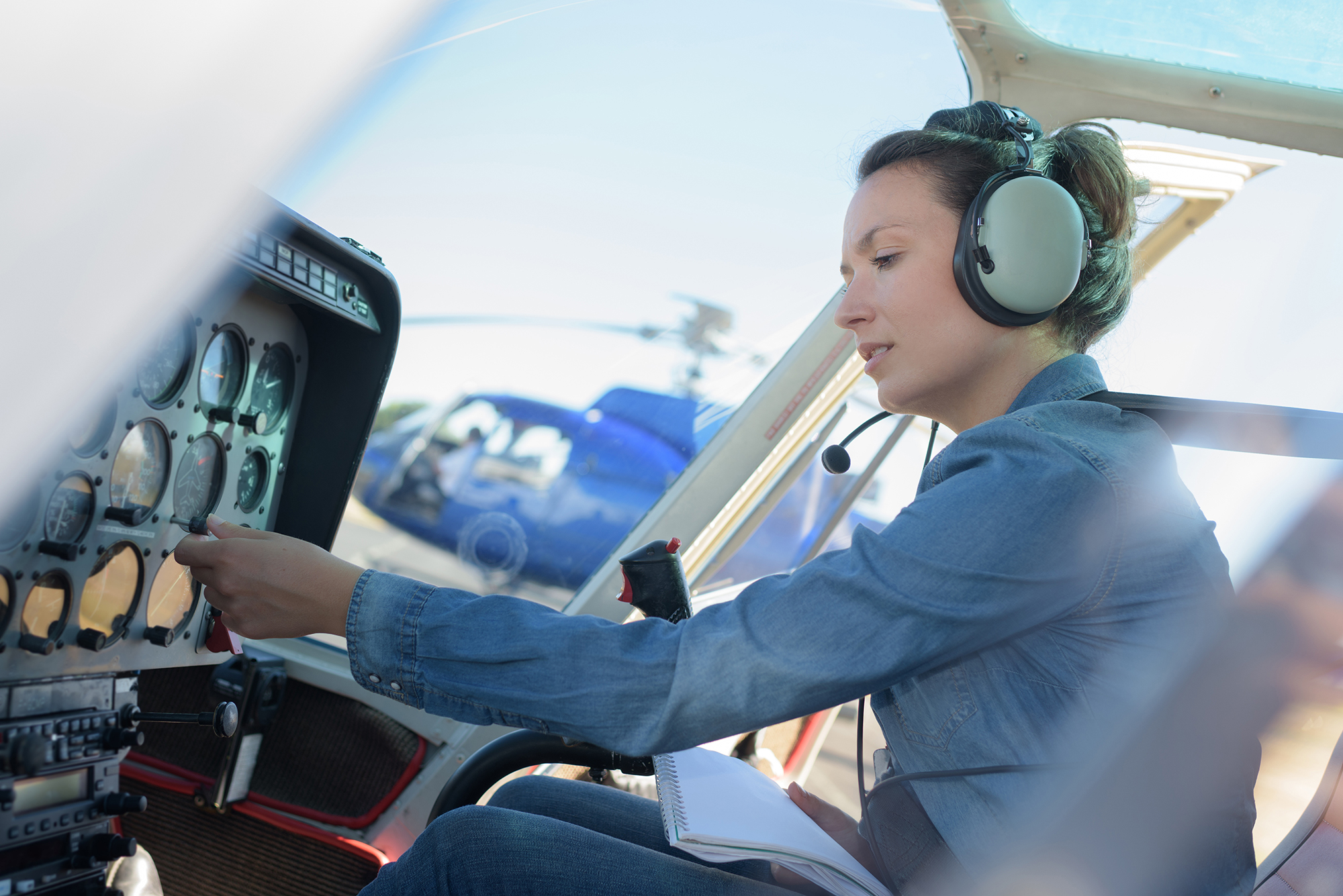
So you now need to find a commercial flying course at an approved helicopter school. You can do this anywhere, and while it is often best to find a school close to home, some people take the opportunity to try flying somewhere further afield. It is worth shopping around to find a school you like unless you are certain already where you want to train.
You may also need to gain more flying hours, particularly if you get your Private Helicopter Pilot’s License in close to the minimum of 40 hours. This means that you might need to undertake what is generally known as ‘hour building’. All this means is that you will need to do some extra helicopter flying in order to ensure that you have completed the required number of flying hours, ie 150 hours. Or you might prefer to do the course first and then see how many hours extra you need; the choice is yours.
You can do any kind of flying for these extra hours. So this could be a good time to do anything you fancy, perhaps even fly to a different country. After all, once you have a helicopter flying job, you might not be able to have this kind of freedom, so perhaps you should make the most of it now.
When it comes to the actual course, you will find that the skills needed to become a commercial pilot go far beyond what you will have learned on the Private Pilot’s Course for helicopters. As well as a high standard of flying being expected, you will need to learn to be a proficient planner, and to make informed ‘go/no go’ decisions. Bear in mind that this is not always easy when you have an employer who is keen for you to fly no matter what the situation – and you may need to learn how to tactfully refuse! This decision-making is perhaps the most important thing you will learn in your commercial pilot training and is the key to becoming a safe and proficient professional helicopter pilot.
The Written Test for the Commercial Helicopter Pilot’s License
The written test for the commercial license is fairly similar to the one for the private pilot’s license. It contains 100 questions, chosen from over 1000 questions in the exam database. Most of the questions in the FAA commercial test database are shared with the private pilot test, but there will be some additional questions, and some extra knowledge will be required. And you will probably find you have forgotten quite a lot of what you did for your Private Pilot’s License, so you will need some fairly extensive revision.
You are allowed three hours for the test, and it will include the following areas of study…
- Federal Aviation Regulations for Commercial Operations
• Aerodynamics and Aircraft Operations
• Navigation
• Aircraft Instruments
• Aeronautical Information Manual
• Aircraft Performance for Commercial Operations
• Weight and Balance Theory
• Low and High Weather Theory, Reports and Forecasts
Now, although some people do successfully study on their own for this test, as you probably found for the private pilot’s written test, it is usually a better idea to either study face-to-face with an instructor, or to find an online course. Online courses are becoming more common, and are cheaper than face-to-face instruction. Many students find that this is an ideal way to learn.
And Finally…
Having completed and passed all of the above, you will also need to pass an oral test, and then have a final flight test with an examiner. You will not take this test until your instructor thinks you are ready for it. But having said that, some people find it quite difficult. I really struggled with my commercial flying test, and I don’t think I was unique!
But having successfully done all of that, you will now be a qualified commercial helicopter pilot!
So is that it? Can you now go out and get a job flying helicopters, and find that life is plain sailing from now on? Well, yes…and no. Read on…
What Next – Getting a Job as a Commercial Helicopter Pilot.
Getting your first flying job is not always easy Yes, you are qualified as a commercial helicopter pilot. But you have no experience, and this means a lot of jobs will not be available to you. Employers tend to want pilots with experience, but you can’t get that experience without a job. A bit of a ‘Catch 22’ situation!
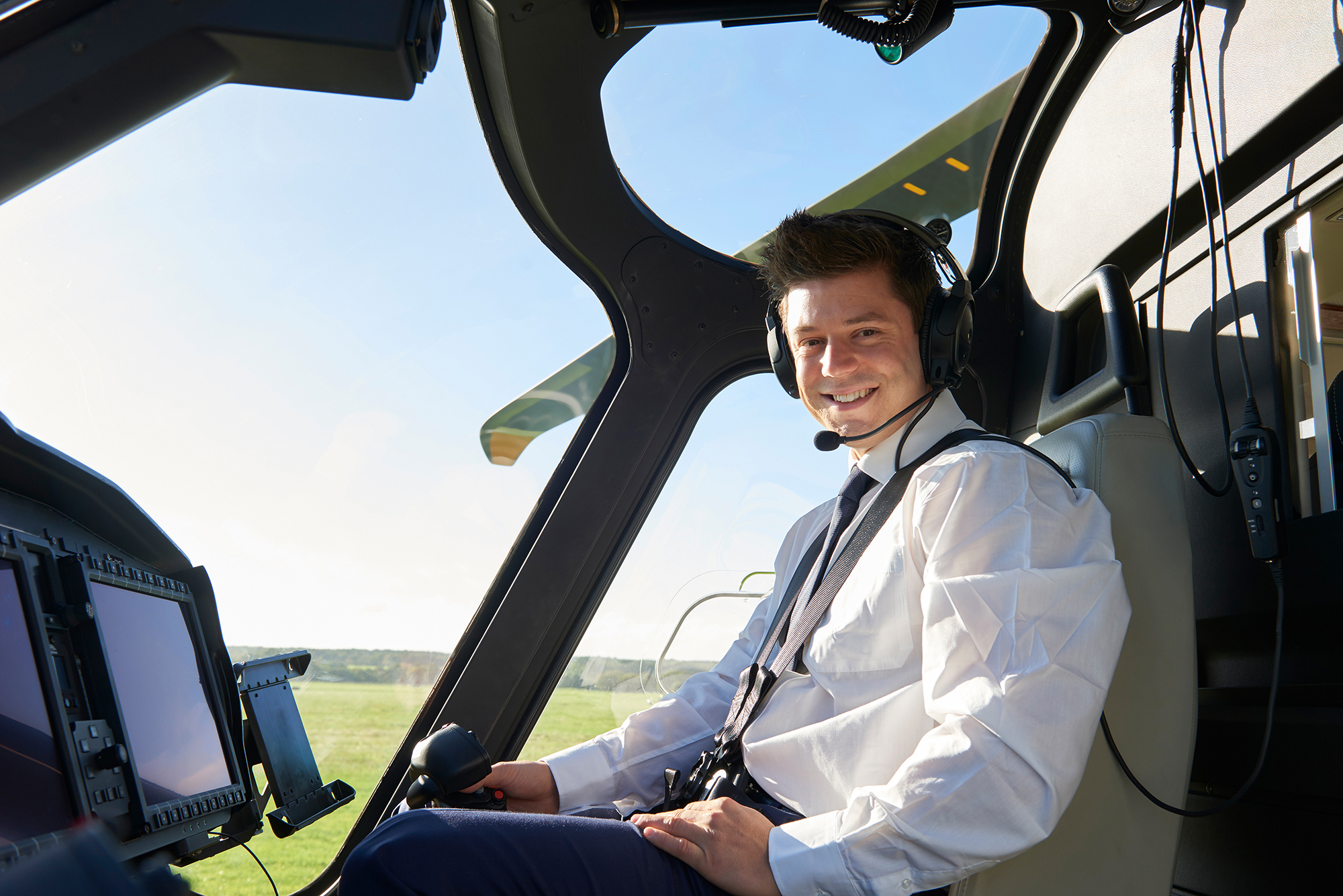
However, it is perfectly possible to get a job as a helicopter pilot straight after getting your commercial license, and many people do. So let us take a look at what kind of jobs will be available, at least theoretically.
Work for commercial helicopter pilots includes the following…
- ENG – News Helicopter Pilot
- Utility Pilot
- Police & Law Enforcement Pilot
- Military Pilot
- Coast Guard Pilot
- Heli-Skiing Pilot
- Heli-Logging Pilot
- Tour Pilot
- Corporate & VIP Pilot
If you are lucky, you might find yourself doing any of these. But it must be said – getting that first job straight out of flight school is tough. You need to be persistent and refuse to give up. Getting a job may require lots of calls, visits, and determination.
Also, although the above jobs sound exciting at first, a lot of the entry-level flying jobs can become monotonous after a while. You may find that helicopter flying becomes routine and even boring!
For these reasons many newly qualified commercial helicopter pilots take the plunge, find some more money, and go for some further qualifications. It could be a good idea to do the course for a Helicopter Flight Instructor Rating and/or a Helicopter Instrument Rating. It does mean doing more studying and of course, spending more money. But it puts you in a far better position than the vast number of new pilots with just a Commercial Helicopter Pilot’s License.
Helicopter instructing is an excellent way to gain experience. Some people do this just until a more exciting flying job comes along. But you may find that you really enjoy being a helicopter instructor. If you like working with people as well as helicopter flying, you might find this very satisfying and a great deal of fun. I certainly did! And if that is the case, this may be a good long-term career for you.
You might also eventually decide to go as far as possible in terms of qualifications and get an Airline Transport Pilot’s Helicopter License. This is the absolute top qualification for helicopter pilots. This license enables you to apply for many more jobs, including those involving carrying passengers. But the training and hours required for this are quite significant, and most commercial pilots work for a while first, using the hours gained while working as a commercial pilot as qualifications for this final license.
Time And Costs Of Becoming A Commercial Helicopter Pilot
It is always very difficult to estimate how long it will take to qualify as a commercial helicopter pilot. There are so many factors involved, such as how quickly you want to do the course, and how much money you have available. Some people take a very long time, doing each part of the course and studying as and when they have the time and money. Others can do it much more quickly.
However, a figure of from two to six months is often quoted as being the time it takes to become a Commercial Helicopter Pilot. This assumes that you start off already holding a Private Helicopter Pilot’s License and that you can work towards the Commerical License steadily, without any long breaks. But real-life timescales do vary greatly.
When it comes to costs, the same thing applies, ie there are many variations. One source gives an estimate of $18,000 – $20,000 for the Commerical Helicopter Pilots’ License, while another one gives a higher figure of $28,500. It depends, among other things, on how much flying you have done beforehand, since getting your Private Pilot’s Helicopter License, and how many hours it takes you to complete the course. And of course, schools vary somewhat in the amount they charge for flying, grounds school tuition, and so on.
If you then go on to do a Flight Instructor course it is likely to cost you from $8,000 to $10,000. An Instrument Rating will cost rather more, something in the region of $16,000.
So none of this is cheap. However, if you really want to be a Commercial Helicopter Pilot, you will probably find it is all worthwhile.
Conclusion
If you enjoy helicopter flying, and most people do, then you will find becoming a Commercial Helicopter Pilot provides you with a most exciting and enjoyable career. You are likely to find that all the expense, time, and effort in getting your qualifications are definitely worthwhile.
However, you should be aware that things are not quite that simple. Helicopter flying is weather dependent, and you may find yourself without any work during winter in some parts of the country, or flying in difficult and even dangerous conditions. And if you are looking for a job with regular hours, you may find that few helicopters flying jobs fit the bill for you.
In addition, the work is not always that reliable. You are always at risk of failing a medical test, particularly later in life. Indeed, I remember being told that being a helicopter pilot was a young person’s career and that I should change to something less stressful and with more regular hours when I got older. There is a certain amount of truth in this.
But if you love helicopter flying, then you won’t worry about any of that. You will simply accept the risks and difficulties as part of the job, and consider yourself fortunate to be one of th3e few people who can look forward to going to work every day. If this sounds like you, then becoming a Commercial Helicopter Pilot sounds like something you should definitely do.
